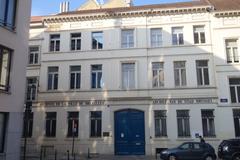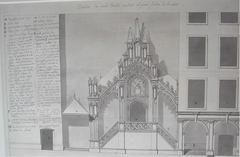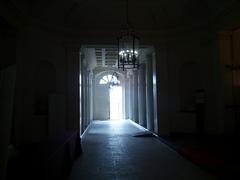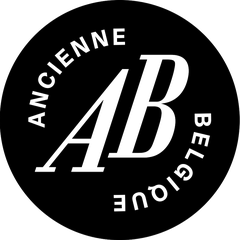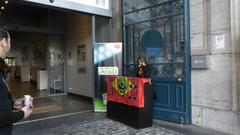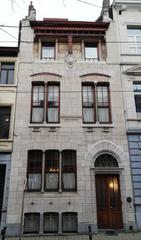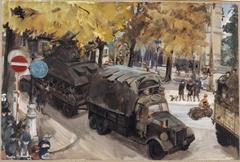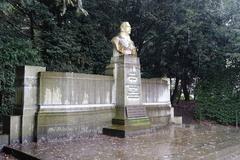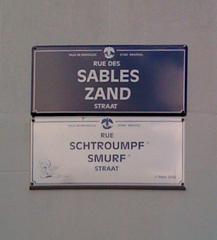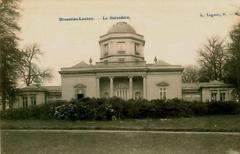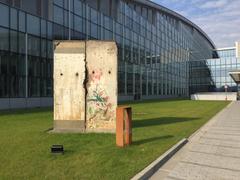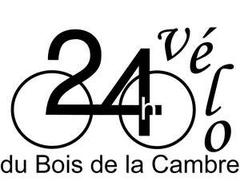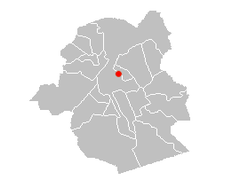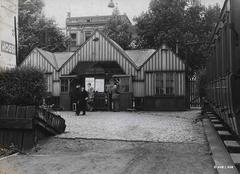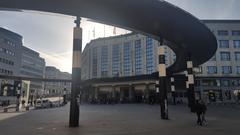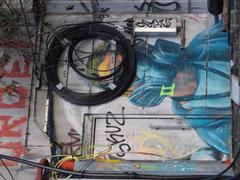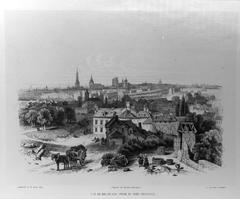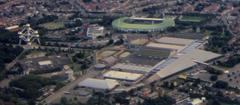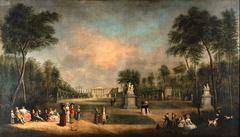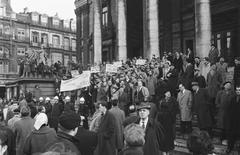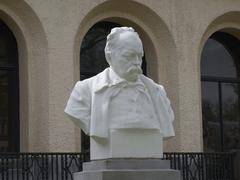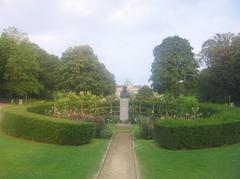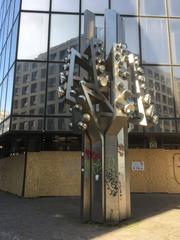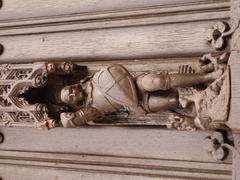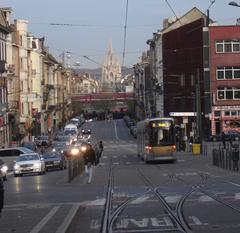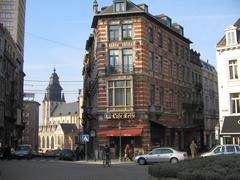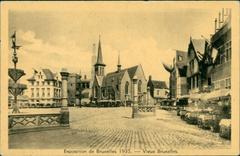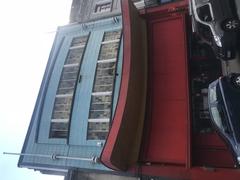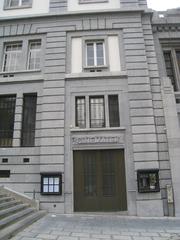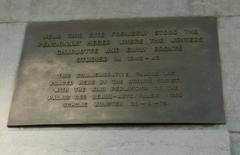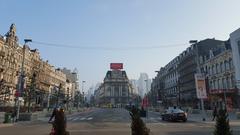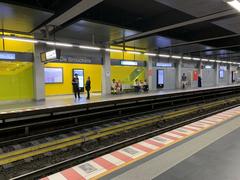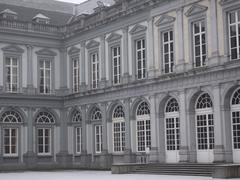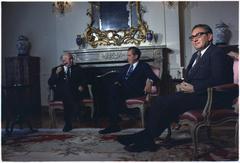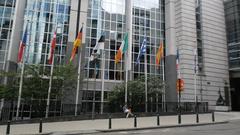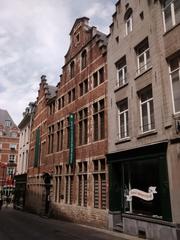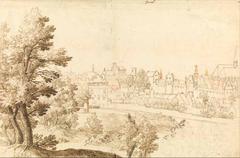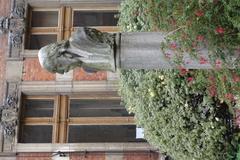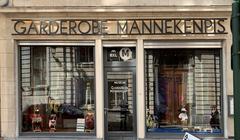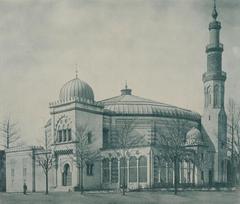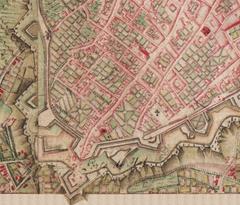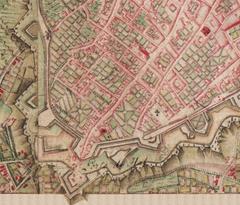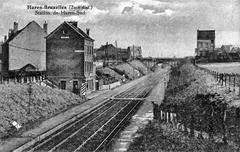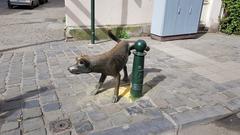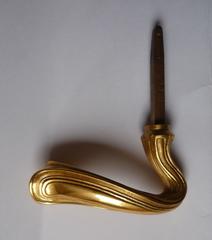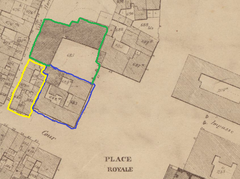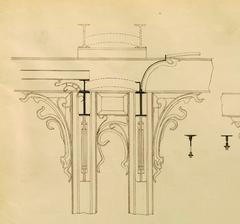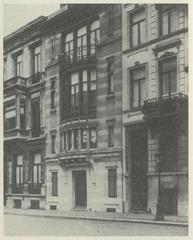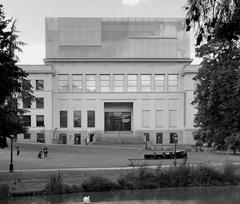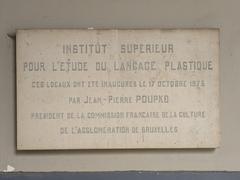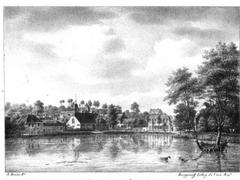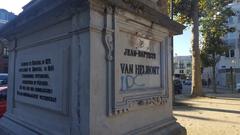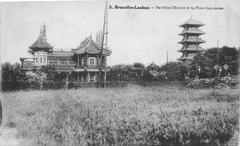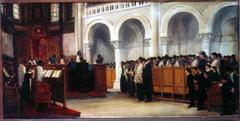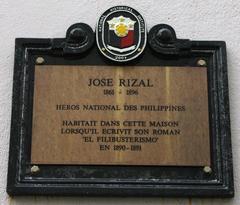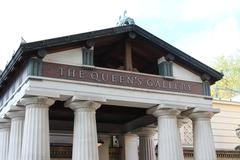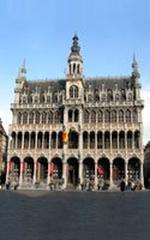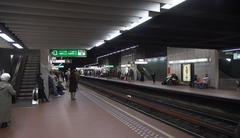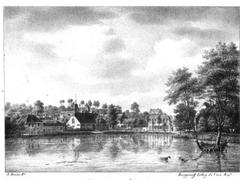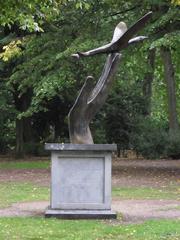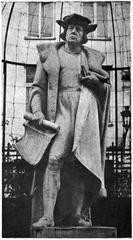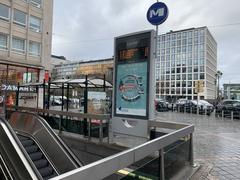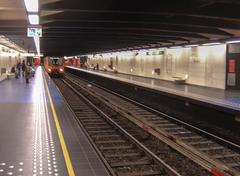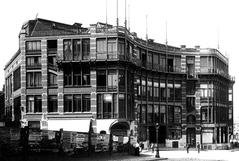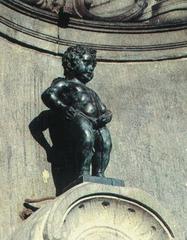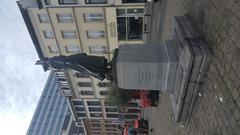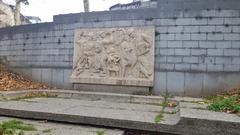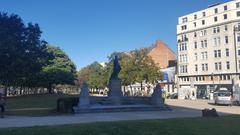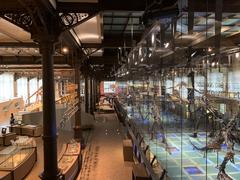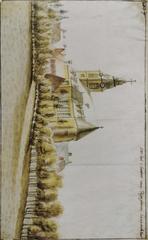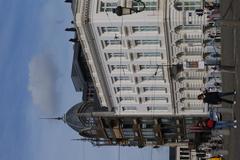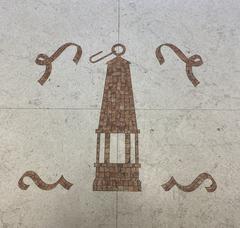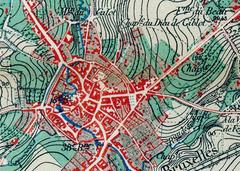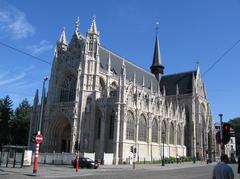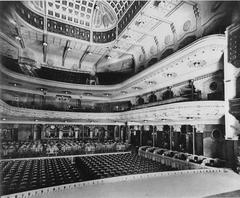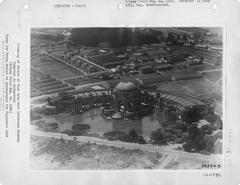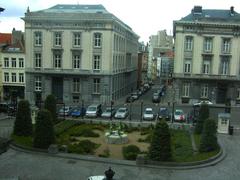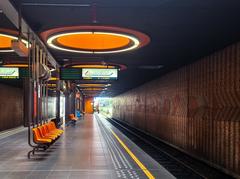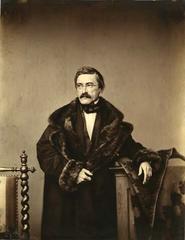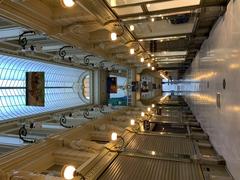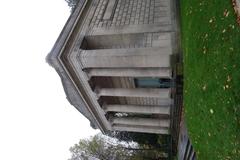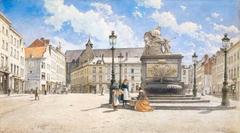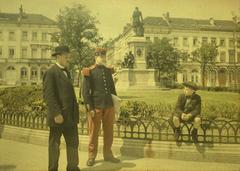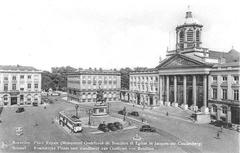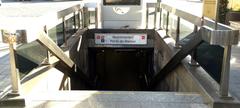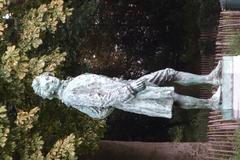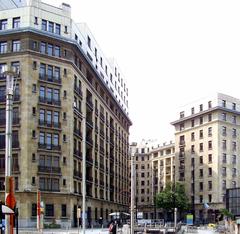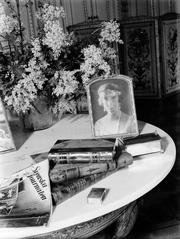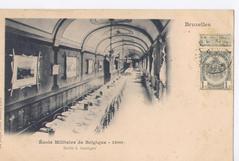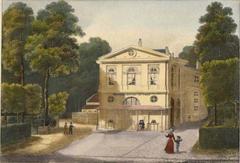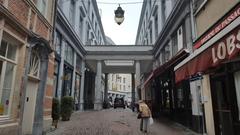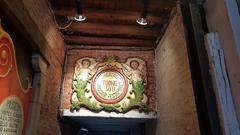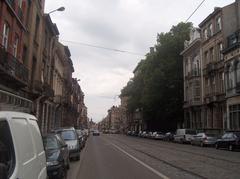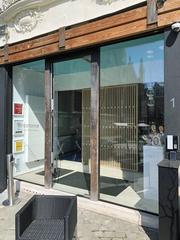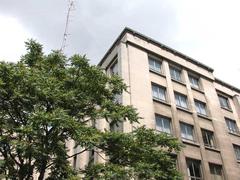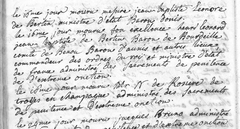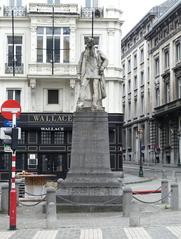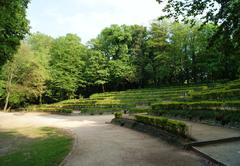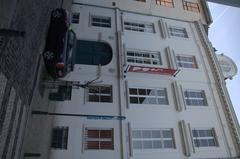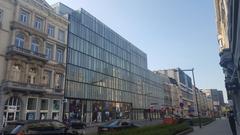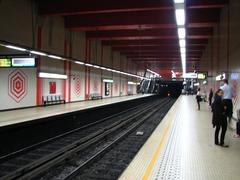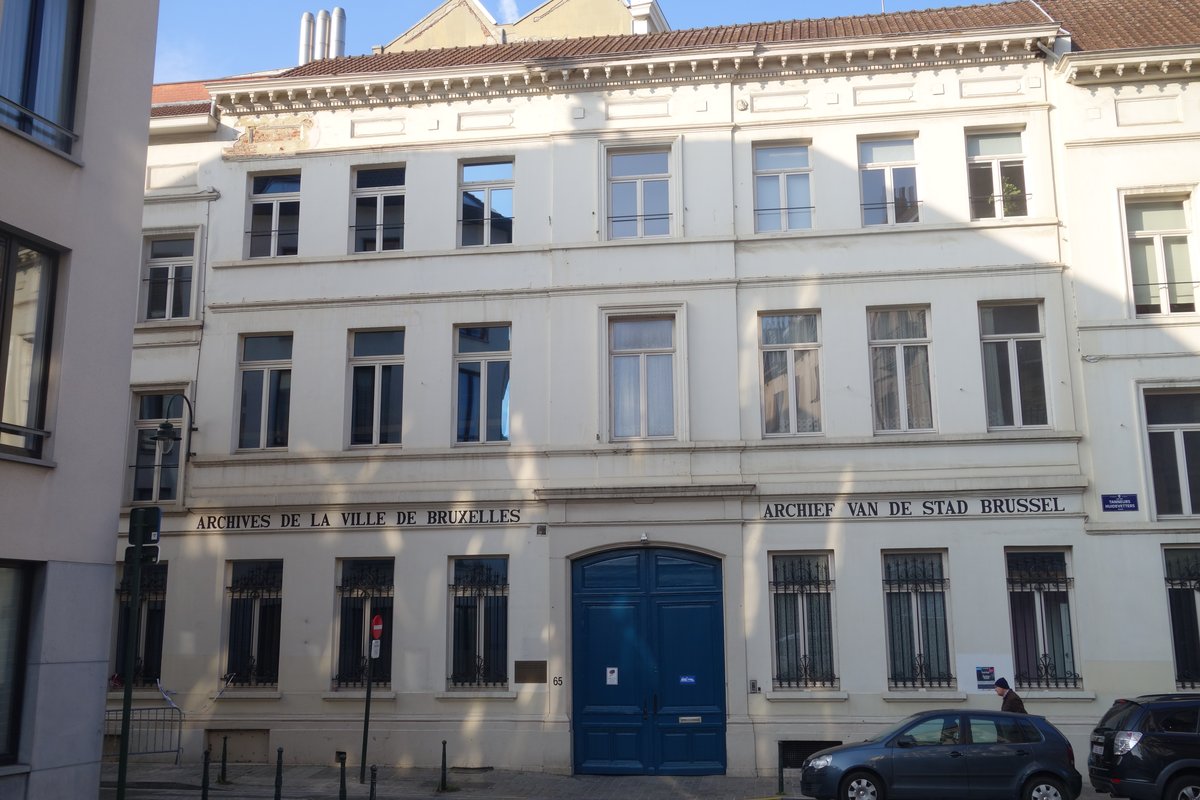
Visiting the Archives of the City of Brussels: Complete Guide to Hours, Tickets, and Historical Insights
Date: 15/06/2025
Introduction
Nestled in the heart of Belgium’s capital, the Archives of the City of Brussels serve as a vital repository preserving over a thousand years of urban memory. From medieval beginnings as Broeksele to its current status as a prominent European capital, these archives offer an unparalleled window into Brussels’ administrative, social, and cultural evolution. Whether you are a researcher, history enthusiast, or traveler exploring Brussels historical sites, the archives provide access to an extensive collection of municipal records, rare manuscripts, maps, photographs, and ephemeral materials that collectively narrate the city’s dynamic journey through history.
Centrally located near iconic landmarks such as the Grand Place and the Royal Palace, the Archives of the City of Brussels welcome visitors with free entry, guided tours, and special exhibitions. Recent advancements, such as the AGATHA digital search platform, further enhance public access and reflect the commitment to safeguarding and sharing Brussels’ heritage in the digital age. This guide details the archives’ historical significance, visitor information, practical tips, and nearby attractions to enrich your cultural experience. For official details and updates, consult the archives’ resources (Archives of the City of Brussels, Brussels.be).
Table of Contents
- Introduction
- Historical Significance of the Archives
- Collections and Scope
- Visiting Information
- Research and Digital Resources
- Practical Tips
- Nearby Attractions
- Frequently Asked Questions (FAQ)
- Visual Resources and Media
- Conclusion and Call to Action
- References
Historical Significance of the Archives
The origins of the Archives of the City of Brussels date to the city’s earliest days. Brussels began as a small settlement in the seventh century, catalyzed by the construction of a chapel commissioned by the Bishop of Cambrai. By 979, the foundation of a fortress under the Duke of Lower Lorraine marked the city’s official emergence, with its strategic location on trade routes prompting rapid growth (Introducing Brussels - History). As power shifted among aristocratic lineages, guilds, and foreign rulers, systematic record-keeping became essential for governance and social organization.
The archives document pivotal moments: from the city’s medieval governance, through the Spanish, Austrian, and French periods, to its role as Belgium’s capital after independence. Key events—such as the Belgian Revolution of 1830, coronation of Leopold I, and Brussels’ development into a cosmopolitan hub—are preserved alongside records of the World Fairs and the city’s modern role within the European Union and NATO. The archives thus serve as a repository of collective memory, safeguarding legal documents, charters, council minutes, maps, photographs, and personal papers (State Archives of Belgium).
Collections and Scope
The Archives of the City of Brussels house a vast and diverse collection, including:
- Municipal records from the Middle Ages to the present
- Newspapers and periodicals (the third-largest collection in Belgium)
- Photographs, prints, and posters documenting the city’s development
- Building permits, maps, and plans illustrating urban transformation
- Genealogical records for family history research
- Ephemeral materials such as flyers and everyday documents
Ongoing digitization projects and publication of colonial-era records (relating to the Democratic Republic of Congo, Rwanda, and Burundi) reflect the institution’s role in preserving both the official and everyday aspects of Brussels’ heritage.
Visiting Information
Location and Access
The archives are now housed within the Brucity Administrative Centre, located at Rue des Halles / Hallenstraat 4, 1000 Brussels (Brussels.be). This central location is within walking distance of the Grand Place, Manneken Pis, and other major city landmarks, and is easily accessible by public transportation.
- By Metro: Nearest stations are De Brouckère and Sainte-Catherine.
- By Tram/Bus: Stops at De Brouckère and Bourse.
- By Foot: Centrally located for easy walking access from key attractions.
- Parking: Limited public parking is available; public transport is recommended.
Visiting Hours and Admission
The Archives of the City of Brussels operate primarily as a research institution and are not open for general walk-in visits. Access is granted during scheduled guided tours or special open days (Brussels.be). Always consult the official website or contact the archives in advance to confirm tour availability and book your visit.
- Guided Tours: Organized periodically, led by staff archivists.
- Open Days: Occasional events with expanded access to collections.
- Booking and Tickets: Advance booking is required for all visits. Admission is typically free during open days and tours but always confirm when booking.
Guided Tours and Special Events
Guided tours typically last 60–90 minutes and are led by professional archivists who provide expert insights into the city’s documentary heritage and the preservation process. Tours may be available in French, Dutch, or English, depending on demand. During special events, visitors may have the opportunity to view:
- Rare medieval manuscripts and charters
- Extensive print and photographic collections
- Old and recent city maps and plans
- Behind-the-scenes processes of conservation and digitization
Group sizes are limited to protect the collections, so early booking is recommended.
Accessibility
The Brucity Administrative Centre is fully accessible to visitors with reduced mobility, offering elevators, ramps, and accessible restrooms. If you have specific accessibility needs, contact the archives in advance.
Visitor Facilities and Security
- Cloakroom: Available for coats and bags; large items are not permitted in the reading rooms.
- Lockers: Provided for a refundable €1 deposit.
- Security: Standard security checks may be in place; bring a valid photo ID for entry.
Photography and Etiquette
- Photography: Policies vary; always ask your guide before taking photos. Photography in reading rooms is generally restricted.
- Handling Materials: Visitors are usually not permitted to handle original documents. Facsimiles or digital displays may be available.
- Silence: Please maintain quiet in reading and exhibition areas; mobile phones should be on silent.
Research and Digital Resources
The archives’ catalog is available online and on-site, with staff to assist with document requests. Many materials require advance notice for access, as they are stored in climate-controlled vaults. The AGATHA digital search platform provides enhanced access to digitized inventories and resources, supporting both on-site and remote research.
Practical Tips
- Plan Ahead: Check the official website for tour dates and booking requirements.
- Book Early: Tours often fill quickly, especially during peak seasons or special events.
- Bring Identification: A valid photo ID may be required for entry.
- Notebook and Pen: Useful for research; digital devices may be restricted.
- Comfortable Shoes: Tours involve standing and walking.
- Weather: Brussels weather is unpredictable; an umbrella is advised (Where and When).
- No On-site Café: Numerous restaurants and cafés are nearby.
Nearby Attractions
The archives’ central location makes it easy to combine your visit with nearby historical sites:
- Grand Place: A UNESCO World Heritage Site and iconic city square (Visit Brussels)
- Brussels City Museum: Further context on city history, complementing the archival experience
- Church of St. Michael and St. Gudula: Notable for its architecture and historical significance
- Local cafés and shops: Ideal for a post-visit meal or coffee
Frequently Asked Questions (FAQ)
Q: Are the Archives open daily?
A: No, access is by scheduled guided tours or special open days. Walk-ins are not permitted.
Q: How do I book a tour?
A: Book in advance through the official website.
Q: Is there an admission fee?
A: Admission is usually free during tours and open days; confirm when booking.
Q: Are tours available in English?
A: Tours are mainly in French and Dutch, with occasional English tours. Confirm language availability during booking.
Q: Is the facility accessible?
A: Yes, the Brucity Administrative Centre is accessible for visitors with reduced mobility.
Q: Can I take photographs inside?
A: Ask your guide—policies may vary depending on the exhibition or area.
Visual Resources and Media
Explore the archives virtually through the official online tour, which features:
- Images of the archives’ exterior and interior with descriptive alt text (e.g., “Archives of the City of Brussels main entrance”)
- Maps showing the location relative to major Brussels landmarks
- Videos and galleries of notable documents and exhibitions
Conclusion and Call to Action
The Archives of the City of Brussels offer a rare opportunity to connect with the city’s heritage, safeguarding invaluable documents that illuminate Brussels’ evolution from a medieval hamlet to a modern European metropolis. With expertly guided tours, accessible facilities, and a central location near the city’s most celebrated sites, the archives are essential for anyone seeking to deepen their understanding of Brussels’ past.
To make the most of your visit, plan ahead by checking the latest information on tours and events via the official archives page. Download the Audiala app for up-to-date visitor tips, and follow the archives on social media for news and special events. Combine your visit with nearby attractions to fully experience the city’s vibrant cultural landscape.
Useful Links
- Official Archives Website
- Brussels City Timeline
- WhichMuseum: Free Museums in Brussels
- Archives Brussels
- Open Day Archives
References
- This is a sample text. (Archives of the City of Brussels)
- This is a sample text. (Brussels.be)
- This is a sample text. (Visitor Experience at the Archives of the City of Brussels)
- This is a sample text. (Visiting the Archives of the City of Brussels: Hours, Tickets, and Insider Tips)
- This is a sample text. (Introducing Brussels - History)
- This is a sample text. (State Archives of Belgium)
- This is a sample text. (STIB/MIVB)
- This is a sample text. (Lonely Planet)
- This is a sample text. (Full Suitcase)
- This is a sample text. (Where and When)
- This is a sample text. (Visit Brussels)
Plan your visit and immerse yourself in the living memory of Brussels—preserved for generations to come.
